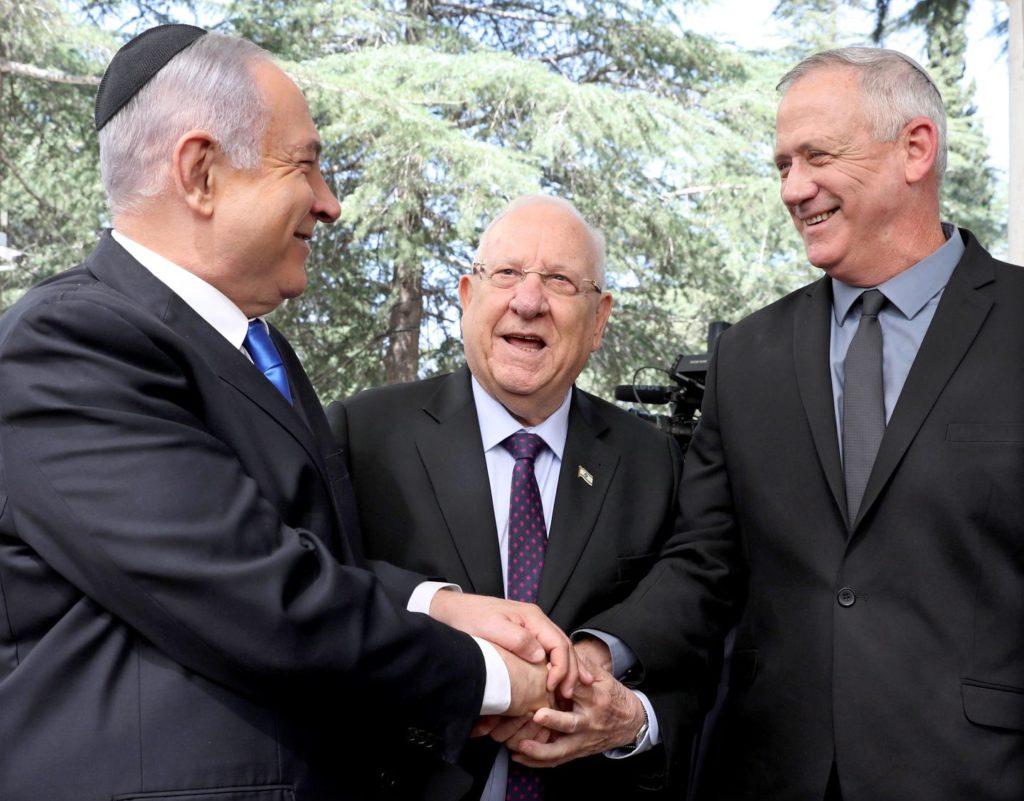Middle East Netanyahu fails to form new Israeli government; rival Gantz poised to take up the challenge
Oct 22, 2019 | PRATIRODH BUREAU
Gantz’s success is far from certain. Israel’s complex political system all but ensures that the final outcome is not likely to be clear for weeks and that a third election in less than a year may be required. But the turn of events Monday was remarkable nonetheless.
“This is new: This broadens the political imagination to include the possibility that someone not named Netanyahu could be the prime minister of the state of Israel,” said Mordechai Kremnitzer, a senior fellow at the Israel Democracy Institute. “But I think Gantz will also find it extremely difficult to shape a coalition.”
Power-sharing talks between Netanyahu’s Likud party and Gantz’s Blue and White party — the two biggest factions in the Knesset — broke down almost immediately. The parties emerged from the September elections with a nearly identical number of seats, and neither was close to a controlling majority.
The prime minister released a video Monday announcing an end to his efforts, two days before the deadline and on his 70th birthday, putting the blame squarely on Gantz for the lack of progress.
“I tried everything to get Gantz to the negotiating table to discuss the formation of a broad national unity government,” Netanyahu said. “I tried everything to prevent another election. But sadly, time after time, he simply refused.”
Netanyahu warned in the video that Gantz could assume power with the support of Israeli Arab lawmakers, whose party emerged as the third-largest in the Knesset, and that those parliamentarians “encourage terror and oppose Israel’s existence.”
In a brief statement, Gantz’s party said, “The time for spin is over, and it is now time for action.”
Although Gantz’s party won one more parliamentary seat than Likud did in the election, Netanyahu was endorsed by the narrowest of margins — one vote — as the preferred prime minister of Knesset members. Rivlin awarded Netanyahu the first official mandate, giving him four weeks to assemble a majority.
But despite Rivlin’s plea that the two sides form a unity government, neither party was willing to budge on key demands. Netanyahu said any governing coalition must include his allies among right-wing and ultrareligious parties. Gantz said someone other than Netanyahu, who is facing likely corruption charges, should lead Likud into a unity government.
The two sides tried hashing out a compromise suggested by Rivlin, under which they would share the prime minister’s position on a rotating basis, with Gantz assuming power if and when Netanyahu is indicted. Netanyahu quickly agreed to the concept but couldn’t bring along Gantz, who may have calculated that Netanyahu’s position will only weaken as his legal case continues.
Negotiators for the two parties met in several sessions without progress. Gantz, after an initial meeting with the prime minister, spurned numerous invitations from Netanyahu to negotiate one-on-one. Gantz insisted that his rival was less interested in compromise than in ensuring he would serve first in any power-sharing rotation. Netanyahu, who could be indicted as early as November, was more keen on “immunity” than unity, Gantz said.
If Gantz cannot form a government within the next four weeks, the president could then invite anyone else in the Knesset to try to assemble a majority of 61 seats. If no one succeeded within three weeks, the country could face its third national election in a year, probably in March.
That prospect is likely to make the final 21-day push to form a government the most fruitful, what a Likud statement called “the real show.”
Analysts say any real possibility of compromise won’t arise until both sides have exhausted their efforts.
“For there to be concessions, there has to be ripeness,” Kremnitzer said. “And to get ripeness, you have to fail some.”
The past few weeks have been especially tumultuous for Netanyahu and Israel. His lawyers spent four marathon sessions trying to persuade the attorney general not to charge him with corruption. Large protests broke out in Israel because of rising crime in Arab neighborhoods. And Turkey launched an offensive against Kurdish fighters in northern Syria after President Trump said he was withdrawing U.S. troops, raising concerns in Israel about the value of American security guarantees.
At one point, perhaps to demonstrate his tight grip on the party, Netanyahu proposed a snap leadership vote within Likud. But when a potential rival from within the ranks expressed interest in running against him, Netanyahu dropped the idea in favor of a vote of confidence at a sparsely attended meeting of the party’s executive committee.
Ruth Eglash contributed to this report.
